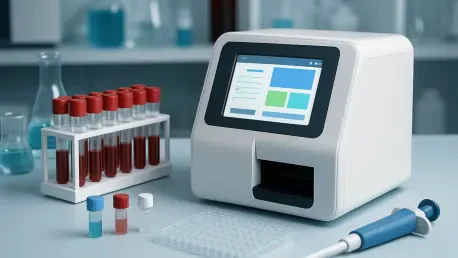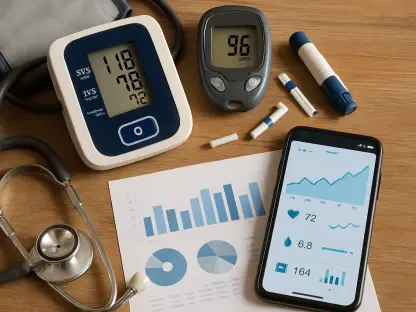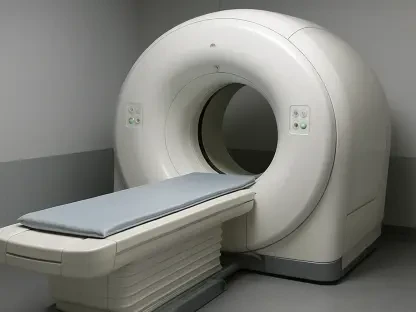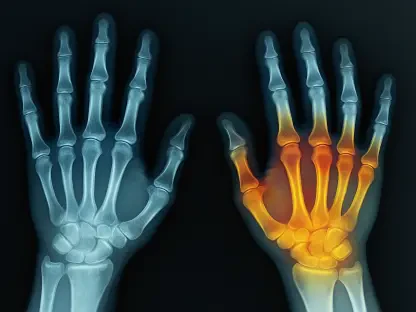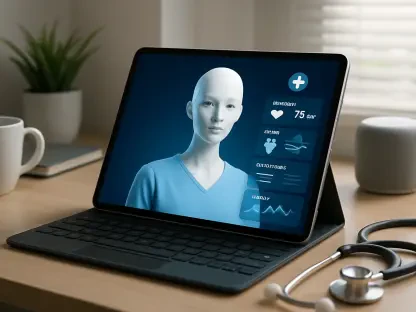Over the past several years, Kenya’s in vitro diagnostics (IVD) market has demonstrated impressive advancements, fueled by a confluence of technological innovations and an increasing need to address infectious and chronic diseases. The high prevalence of diseases like HIV, tuberculosis (TB), and malaria has urged the Kenyan government to implement stringent health initiatives, emphasizing advanced diagnostic solutions. This climate has set the stage for robust growth, with an expanding ecosystem of global and local players like Abbott Laboratories and the Kenya Medical Research Institute (KEMRI) seeking to enhance the diagnostic landscape. The growing demand for improved diagnostic quality is pivotal, bolstered by modern tools and methods transforming healthcare into a progressive, responsive entity in Kenya.
Undeniable Influence of Infectious Diseases
HIV and Tuberculosis Treatment Initiatives
Kenya faces a sustained challenge posed by widespread infectious diseases, principally HIV and tuberculosis. These diseases remain substantial obstacles, prompting systemic strategies to combat their spread. The Kenyan government has proactively embarked on rigorous HIV testing campaigns to mitigate this health burden, prioritizing rapid antibody and nucleic acid-based tests that provide swift, precise results. Governmental focus on immediate detection and efficient treatment highlights advanced diagnostic tools, significantly boosting the IVD sector. In this framework, technology makes it increasingly possible to contain infectious outbreaks, signaling a progressive era where diseases do not spiral out of control due to inadequate diagnostic solutions.
Technological integration has further augmented efforts to combat these diseases, providing innovative diagnostic approaches that facilitate early detection and comprehensive monitoring. Internationally renowned companies and local entities, such as Laboratories & Allied Ltd, support the advancements needed to fight diseases by employing cutting-edge technologies. These collaborations demonstrate a commitment to ongoing technological progress, signifying a brighter future for Kenya’s healthcare system. Efficient adoption of modern diagnostic equipment is averting the escalation of these health concerns, underscoring an essential strategy that the nation continues to embrace enthusiastically.
Managing Malaria and Broader Implications
Malaria, a persistent health challenge in Kenya, continues to necessitate stringent diagnostic measures. The government’s augmented healthcare strategy encompasses widespread malaria screening and testing, highlighting the essential role played by the IVD sector. Affordable, rapid test solutions now occupy center stage, aiding in disease detection and offering vital insights into disease patterns and control measures. This surge in testing capabilities has a ripple effect, leading not only to improved patient outcomes but also to lower healthcare costs and a more robust public health infrastructure.
Kenya’s battle against malaria parallels its efforts in other disease arenas, highlighting the broader implications of a technologically sophisticated healthcare strategy. The synergy between technological advancement and healthcare utility creates a foundation that holds significant promise for future clinical outcomes. As the diagnostic landscape matures, the flexibility and speed of these tools become indispensable; this responsiveness facilitates effective management of diseases while fostering confidence in healthcare systems. Ultimately, the successful management of malaria through innovative diagnostic means serves as a model for addressing an array of public health issues with similar efficacy.
Expanding Technological Frontiers in Diagnostics
Rise of Whole Blood Glucose Monitoring
Within Kenya, whole blood glucose monitoring has witnessed remarkable advancements, driven by increased diabetes awareness and a growing emphasis on self-management. The prevalence of diabetes continues to climb, encouraging an uptake in glucose monitoring tools that empower patients with autonomous health management solutions. These self-testing kits have gained significant traction, symbolizing a pivotal shift toward over-the-counter (OTC) solutions. This sector’s expansion indicates the rising importance of self-reliant healthcare practices among the populace, promoting personalized medicine as a crucial component of the evolving landscape.
Insight into the shift towards personalized healthcare models reveals the inherent advantages of over-the-counter solutions, especially when coupled with growing consumer awareness and education in managing health conditions. Users are increasingly adopting OTC kits for their convenience and cost-effectiveness, signifying a shift in consumer preferences towards more hands-on health management. As this sector progresses, enhanced communication and information dissemination emerge as critical elements underpinning the successful integration of these diagnostic solutions, further embedding them as indispensable tools in the fight against chronic diseases like diabetes.
Integration of Digital Health Tools
The integration of digital health tools within Kenya’s diagnostic framework marks a promising frontier, transforming healthcare access and delivery. With digital technology, diagnostics become an integral part of a comprehensive ecosystem that fosters improved patient outcomes, tailoring treatments to individual needs more effectively. This transformation aligns Kenya with global health advancements, painting a picture of a progressively modernized healthcare system that remains attuned to global standards.
As digital tools permeate Kenya’s IVD landscape, their potential to extend healthcare services beyond traditional bounds becomes evident. Technologies such as mobile health applications facilitate real-time diagnostics and treatments, delivering healthcare directly to the patient’s fingertips. This revolution not only elevates healthcare accessibility but also expands capabilities for remote monitoring and management. The result is an empowered patient base that assumes a proactive role in health monitoring, embodying the essence of technological advancement within healthcare frameworks. This integration heralds a strategic shift from traditional practices towards seamless, user-friendly solutions, ensuring widespread healthcare improvements.
Future Prospects in Diagnostic Applications
Enduring Dominance of Infectious Disease Testing
As diagnostics evolve, infectious diseases are projected to maintain their position as the largest segment within Kenya’s IVD market. High disease prevalence, alongside more accessible low-cost test kits, paves the way for comprehensive detection and management. These advancements in rapid disease detection offer clearer pathways for timely treatment, preventing disease progression and fortifying public health resilience. The embracing of convenient testing methods at the consumer level signals enhanced health awareness and a decisive move towards efficient, self-administered health management solutions.
Significant consumer behavior shifts are observable in the burgeoning self-testing market as consumers capitalize on accessible healthcare options. This proactive approach transcends conventional healthcare methods, fostering a culture of awareness that prioritizes health. The convenience and affordability of home healthcare solutions empower individuals to take health matters into their own hands, effectively bridging healthcare access gaps. This dynamic paradigm shift indicates a broader evolution within Kenya’s health sector, one where consumer engagement plays a vital and transformative role.
Sustaining Diagnostic Laboratories’ Impact
Kenya grapples with the persistent challenge of widespread infectious diseases, notably HIV and tuberculosis, which remain significant hurdles. To tackle their spread, the Kenyan government is actively engaged in rigorous HIV testing initiatives, utilizing rapid antibody and nucleic acid-based tests known for delivering quick, accurate results. By focusing on immediate detection and efficient treatment, the government emphasizes advanced diagnostic tools, significantly enhancing the in vitro diagnostics (IVD) sector. This strategic shift signals a transformative era where technology plays a vital role in containing infectious outbreaks, preventing them from spiraling out of control due to inadequate diagnostics. Technological integration bolsters efforts to combat these diseases effectively, offering innovative diagnostic methods for early detection and thorough monitoring. Collaborations between global and local companies, such as Laboratories & Allied Ltd, are pivotal in advancing cutting-edge technologies to fight these health issues. This cooperative progress promises a brighter future for Kenya’s healthcare, highlighting the importance of modern diagnostic tools in managing health challenges.
